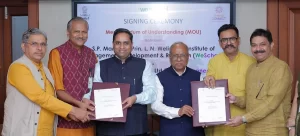A CEO is an important aspect of any organization as he is responsible for formulating and executing highly successful strategies that result in the long term growth of any organization. The role of a CEO is a complex one and involves a lot of detailed processes.
With more and more people opting to start –up, the new breed on ‘Young CEOs’ is on the rise in India. More and more individuals are now taking charge of the organization at a relatively young age.
A CEO develops and implements high-level strategies. They make major corporate decisions and manage the overall operations and resources of a company. A CEO also acts as main point of communication between the corporate operations.
Habits of Young CEOs
CEOs spend most of their time on masterful and excellent activities and delegate various activities to accelerate results.
They get smarter every day by building on strengths and use the ‘feedback is a gift’ principle. Also as a habit they don’t take anything personally.
A lot of CEOs feel that starting their day early and exercising once a day results in better productivity. The same has been mentioned by various successful CEOs who have benefited from this practice.
Successful Time and Resource Management and Multitasking are other attributes that contribute to the growth of these CEOs.
Some common mistakes they make
Though Young CEOs are dynamic and create great organization culture and drive the growth of their organization, there are certain habits that act as a hindrance in their overall development. They are: –
- Communication gap: Not speaking openly to their employees and hence creating a gap in the flow of information.
- Partiality in decision making: Sometimes taking a decision without considering both sides of the problem creates unfair decisions.
- No Long Term Vision – A lot of CEOs forget to plan their long term vision and in the process miss out on a lot of key decisions.
- Fear From Failure – A lot of individuals get bogged down by the fear to fail. Young CEOs need to embrace fear and move on with new learnings.
Prof Dr. Uday Salunkhe, Group Director-WeSchool says on How to avoid this : –
- Weekly meeting- A weekly meeting with the department or direct reports is a great method of providing guidance and exchanging information between team members.
- Mini training sessions- It’s also an opportunity to provide mini training sessions on current topics of interest. If someone has a lesson learnt or an interesting experience to share, this is an ideal time to discuss it as a group. A good way to ensure consistency and optimum attendance is to schedule the mini training session each week.
- Daily rounds- Another effective tactic to increase communication is to “make daily rounds” by visiting each of the departments for five to ten minutes to keep abreast of activities and provide on-the-spot guidance as needed.
Prof Dr. Uday Salunkhe, Group Director-WeSchool on how to become a successful CEO: –
Design thinking
Design thinking is the ability to think like a designer. It is an open-minded, problem-solving approach, incorporating
- Putting human beings at centre of any creation, with the ability to empathize with the people.
- The ability to question and rethink basic fundamentals is critical to design thinking.
- A design thinker uses observation as a powerful tool to go deeper into unmet and unsaid needs of the people around.
- A designer looks for inspirations across domains and applies them in the relevant context.
- “Fail early to succeed sooner” is the mantra of a design thinker. It keeps you constantly in touch with the consumer. Rapid prototyping is especially valuable in times of dynamic changes in business environment.
Creative Leadership
A creative leader is forward looking. He looks out for potential challenges & opportunities and can see invisible things others miss. He or she constantly evaluates the skill sets of team members and provides them with specific and corrective feedback. Make Collaboration, co-creation and network thinking high on the list of priorities.
Global citizen leadership
In the times of crisis when employees may tend to grow insecure, fearful and sceptical, it is up to the CEO’s to motivate and inspire their teams to achieve greater heights for themselves, their organizations, for their country and the world.







